
Lactation / Breastfeeding Continuing Education Bundle #6 (26 Hours)
Originally offered in 2018 at our GOLD Lactation Conference. The GOLD Lactation Online Conference is the largest annual breastfeeding conference in the world. It is an excellent resource suitable for all skill levels and is a perfect fit for IBCLC's, Lactation Consultants, Nurses, Lactation Educators, Breastfeeding Counselors, Mother to Mother (Peer to Peer) Support Workers, Midwives, Physicians, Dietitians, Doulas, Childbirth Educators and anyone else working or studying within the maternal-child health industry. Explore the latest research, trends, new ideas and hot topics in the world of human lactation.


Jeanette McCulloch, IBCLC, is the co-founder of BirthSwell, spreading birth (and breastfeeding and MCH) genius, changing policy, and building businesses and organizations using strategic digital communications. With more than 20 years experience in communications and women’s health advocacy, she provides consultation to local, statewide, national, and international birth and breastfeeding organizations and small businesses. She has published research and spoken at national conferences on reaching millennial parents online. She is passionate about health equity and ensuring that all families have access to high-quality, culturally sensitive birth and lactation care. Jeanette unplugs with her partner and two children while splashing around in the gorges of her hometown, Ithaca, NY.
Objective 1: Develop familiarity with the unique makeup of LGBTQIA and gender non-conforming families, challenges faced by this community accessing health care, and the impact on lactation outcomes;
Objective 2: Identify and discuss concerns with providing accurate, equitable breastfeeding and chestfeeding care to LGBTQIA and gender non-conforming families;
Objective 3: Review research on outcomes for children raised in LGBTQIA families;
Objective 4: Define terminology used to describe gender identity, gender expression, biological sex, and sexual preference and develop approaches for using accurate terminology while providing breastfeeding care.
As lactation professionals and supporters, we will encounter LGBTQIA+ and gender non-conforming families in health care settings, private visits and support groups. Deepen your knowledge of the unique needs of queer, trans and gender-non conforming parents during lactation. This session allows participants to explore our awareness, ask questions in a safe space and develop the tools to meet all families where they are.
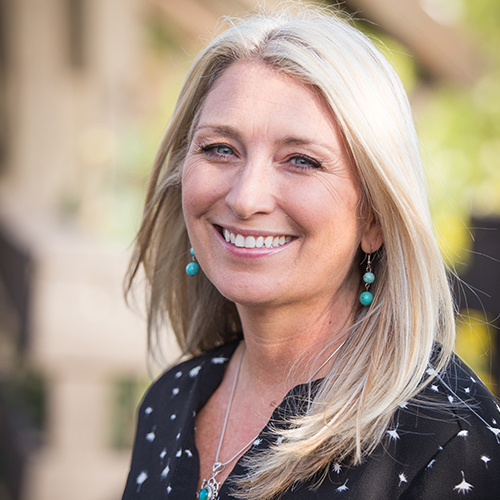

Laurel Wilson, IBCLC, CLE, CCCE, CLD is a TEDx and international speaker, author, pregnancy and lactation expert, and consultant. She served as the Executive Director of Lactation Programs for CAPPA, the Childbirth and Postpartum Professional Association for 16 years and now is on the Senior Advisor Board. She served on the Board of Directors for the United States Breastfeeding Committee from 2016-2019. She also is on the Advisory Board for InJoy Health. She owns MotherJourney, focusing on training perinatal professionals on integrative and holistic information regarding pregnancy, childbirth, and breastfeeding. She has her degree in Maternal Child Health: Lactation Consulting and is an internationally board certified lactation consultant. As the co-author of two books, The Attachment Pregnancy and The Greatest Pregnancy Ever, original Editor of the CAPPA Lactation Educator Manual, and contributing author to Round the Circle: Doulas Talk About Themselves, she loves to blend today’s recent scientific findings with the mind/body/spirit wisdom. Laurel has been joyfully married to her husband for nearly three decades and has two wonderful grown sons, whose difficult births led her on a path towards helping emerging families create positive experiences. She believes that the journey into parenthood is a life-changing rite of passage that should be deeply honored and celebrated.
Topic: Epigenetics and Breastfeeding: The Potential Longterm Impact of Breastmilk - [View Abstract]
Topic: Hold the Phone! Diet Does Matter During Breastfeeding: Implication of Diet on Fatty Acid Composition and Other Nutrients - [View Abstract]
Topic: Postpartum Mood Disorders, Breastfeeding and the Epigenetic Links from Past Into Future - [View Abstract]
Topic: Talk To Me: How Breastmilk Acts as a Communication and Gene Expression Tool Between Mother and Child - [View Abstract]
Topic: The Milk Sharing Conundrum - The Grey Area Between Scope and Need - [View Abstract]
Topic: The Placenta and Breastmilk-Unraveling the Mysterious World of the Intelligent Organs that Protect our Babies - [View Abstract]
Topic: Understanding Zika and Lyme and Breastfeeding - [View Abstract]
Topic: Unraveling the Mysteries of Human Milk: The Fascinating Role of Neohormones, Epigenetics, the Microbiome and More! - [View Abstract]
Objective 1: Identify at least two properties in breastmilk that act as communication tools within the body;
Objective 2: List one way in which mRNA in breastmilk has a protective effect on the baby;
Objective 3: List at least one way mRNA shifts occur in the mother during lactation.
Breastmilk has long been understood to be a pathway towards long-term health for both mother and child. The specific mechanisms for how this communication works has long been studied and today many researchers believe that messenger RNAs and stem cells contribute in many ways to appropriate developmental pathways for the baby and cause gene activation that promotes health for life. mRNA in breastmilk can also be influenced by the time of day and even the timing of the babies delivery, becoming adaptive for the baby’s unique needs. Not only do these messenger RNA communicate important genetic information to the baby via breastmilk, changes in the mothers body via mRNA occur during lactation responding to a new “mothering” focus during the period of lactation. This may impact the mother’s postpartum mental states, adaptation to stress, and changes in fatty acids. This presentation highlights some of the fascinating studies that demonstrate the myriad of ways that stem cells and mRNA during lactation become the ultimate communicators, affecting change for years to come.


Amy Barron Smolinski holds an MA from Union Institute and University, where her thesis explored re-emerging Sacred Feminine manifestations in the lives of contemporary women. She is the Executive Director of Mom2Mom Global, a network of breastfeeding peer support, education, and advocacy for military families. She works with breastfeeding dyads in a variety of settings, from inpatient postpartum and NICU to home visits, telephone, and online consulting as an Advanced Lactation Consultant and Certified Lactation Counselor. Supporting breastfeeding families has shown her how each parent’s breastfeeding journey with each of her children is a reclamation of her connection to her inner wisdom and power. Amy is an actress, director, and professional voice artist in Germany, where she resides with her husband and four sons, all of whom breastfed to self-weaning.
Topic: When Tears Flow and Milk Doesn’t: Support Through Breastfeeding Grief - [View Abstract]
Objective 1: Identify common language and terminology used in Facebook groups;
Objective 2: Understand the difference between harmful conflict and safe conflict;
Objective 3: Grasp how to leverage social media to connect with, educate, and support today’s parents where they are.
Millennial parents live and learn on social media. Yet, much of the information available online, even through lactation “support” groups, is outdated, inaccurate, and counterproductive. Millennial parents, particularly mothers, also place pressure on themselves to get parenting “right,” which leads to a complex and dangerous blend of anxiety, guilt, and fear surrounding all of their parenting decisions. Facebook closed groups can be an effective platform for creating a virtual breastfeeding support group, but just as in real life, the groups must be properly facilitated. This presentation offers step by step guidance to creating, setting up, and maintaining a Facebook breastfeeding support group. We’ll deconstruct common controversies that occur within social media, and analyze conflict management strategies to create safe spaces online.


Paulina is the mother of three multicultural Latino children and Project Director for Lifespan Local. Paulina earned her BS in Psychology from the Pennsylvania State University, a MS in Organizational leadership from the University of Denver and is completing her PhD in Health and Behavioral Sciences at the University of Colorado - Denver. Paulina has over 18 years of experience working with families with young children. As a Maternal Child Health specialist for Jefferson County Public Health, she developed a NICU follow-up home visitation program and the pediatric emergency preparedness plan, co-founded and coordinated the Conectando Network (former Adelante Jeffco), established community navigation and lactation support groups focused on the Latino Spanish speaking community, and lead other initiatives to support leadership and partnerships among communities and organizations. During the COVID-19 pandemic, she managed the new program Whole Community Inclusion to ensure the pandemic response and recovery implementation included health equity practices that recognize the needs and the strengths of priority populations in the county. Her areas of current work include promoting perinatal and infant mental health along the continuum of care; building community capacity to navigate health and education systems; facilitating organizational change to embrace linguistic and culturally responsive practices; and establishing community-placed participatory programs to strengthen communities. She likes to be with people, learn from and with others, and connect passions for meaningful work.
Topic: From the NICU to the home: mother’s experiences - [View Abstract]
Topic: Leadership Skills in Lactation: Make Extraordinary Things Happen - [View Abstract]
Topic: Liderazgo en Lactancia - Para Alcanzar Metas Extraordinarias - [View Abstract]
Topic: Nursing A Preemie, Perspectives For Lactation Supporters and Professionals - [View Abstract]
Objective 1: Define health equity, diversity, inclusion, disparities, and system levels interventions;
Objective 2: Describe the role of lactation health and social development for the family;
Objective 3: Identify potential partnerships and opportunities for equity advancements in the lactation field.
Breast/chest feeding is a biological, emotional, and social process. There is an undeniable link between human
milk and behaviors associated with feeding. Breast or chest feeding provide the perfect environment for babies’
development, such as bonding, attachment, mutual regulation, security, etc. But what happens when parents
can’t access effective, culturally competent, compassionate lactation services? What happens when over
generations lactation support has been lacking?
Every parent deserves the chance to meet their feeding goals and enjoy the short and long term benefits of
human milk feeding. Social inequities augment the effects of not experiencing those benefits making it even
harder for parents and babies to have their physical, emotional and social needs met. Outcomes of lactation
impact the dyad, the family, the community beyond the nutritional needs of the infant.
Advocacy efforts at local, regional and national levels create meaningful opportunities for health equity, so
those with no power or resources can reach optimal health. Lactation consultants are in a unique position to
advocate and partner with others to support policies and programs that focus on equity as a systems approach
to benefit marginalized communities and impact their physical and mental health in the long-term.


Topic: The Recreational Drug-Marijuana Dilemma - [View Abstract]
Objective 1: Show how to effectively evaluate recreational drug use during breastfeeding and pregnancy;
Objective 2: Show how to counsel mothers who are pregnant or breastfeeding and using recreational drugs, including marijuana;
Objective 2: Evaluate ethical concerns regarding marijuana use.
It is quite apparent that in our current society, pregnant and breastfeeding women do use and ingest recreational substances (in both a wisely manner and unwisely manner) and drugs of abuse, natural and/or synthetic. Marijuana use is of special concern currently, especially considering the ethical and legal concerns of its use. The objectives of this presentation are to effectively evaluate recreational drug use during breastfeeding and pregnancy; to counsel mothers who are pregnant or breastfeeding and using recreational drugs, including marijuana; and to discuss and address ethical concerns regarding marijuana use.


Briana Tillman received her undergraduate degree in International Relations from the United States Military Academy at West Point. She has been a La Leche League Leader for 9 years and is a board certified lactation consultant. After spending 10 years as a stay-at-home mom, she is currently in her third year of medical school at Rocky Vista University College of Osteopathic Medicine in Parker, Colorado. She loves spending time with her husband and three kids—as a family they like to travel, go camping, and play string instruments in “family ensemble.”
Nick is a 3rd year medical student at Rocky Vista University College of Osteopathic Medicine. He has a background in mechanical and systems engineering but found his calling in medicine after volunteering for Health4Haiti in 2011. He lives in Colorado with his wife and they enjoy hiking, camping and fishing in the great outdoors.
Topic: What a Letdown: Exploring the Physiology of the Milk Ejection Reflex - [View Abstract]
Objective 1: Conceptualize the hormonal milieu and chemical signaling pathways influencing milk letdown;
Objective 2: Describe the relationships between stress, pain perception and oxytocin in the breastfeeding experience;
Objective 3: Understand the controversy surrounding the use of synthetic oxytocin during labor and breastfeeding;
Objective 4: Discuss the clinical impact of overactive, underactive, and dysphoric letdown.
New mothers experience the milk ejection reflex, or “letdown,” in various ways. While some feel no physical symptoms, others experience a tingling sensation and some even have significant pain or sadness. Babies also have different experiences, from the overactive “drink from the firehose” to frustratingly long waiting at feeding time. This presentation explores the multitude of influences on letdown, from internal hormones and chemical signaling pathways to the research related to such external influences as diet, alcohol, stress, and the use of synthetic oxytocin.
Many moms believe that they either do not produce sufficient milk or need a quicker, more effective letdown. Suggestions to deal with these issues range from drinking beer to adding different nutritional supplements to the diet, from hypnosis to oxytocin nasal spray. We will explore the research and unravel the best practices and recommendations we can give to clients related to their concerns about the milk ejection reflex.
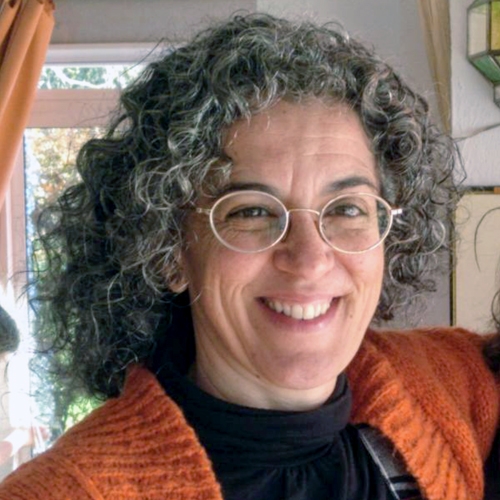

Carmela is a family medicine MD, bachelor´s degree in Public Health Education, and IBCLC since 2005. She is also a BFHI Evaluator and the co founder and past president of the Spanish Lactation Consultant Association (AECCLM). She works in a private Family Wellness Clinic, Raices, as person in charge of the lactation program, which includes two IBCLCs attending breastfeeding families and an extensive offer of breastfeeding training for health care professionals and breastfeeding peer counsellors. The team has trained over three thousand doctors, midwives and nurses from both the Spanish National Health Service and the private sector in Spain. She is a frequent lecturer at national conferences, and has also lectured internationally, both on-site and online. She is the author of several scientific papers on breast pain, mastitis and tongue tie. She is also the author of a breastfeeding/parenting book, “Amar con los Brazos Abiertos” (To Love with Open Arms). She is married to Carlos and they homeschool their four children.
Topic: Assessment and Management of Mastitis - [View Abstract]
Topic: Getting Milk Production off to a Good Start - [View Abstract]
Topic: Management of Chronic Breast Pain: Holistic Approach - [View Abstract]
Objective 1: Participants will be able to describe a detailed history and assesment of the mother´s pain, to rule out different causes;
Objective 2: Participants will be able to describe various new approaches to chronic breast pain and the evidence behind them;
Objective 3: Participants will be able to discuss an holistic point of view on management of breastfeeding pain.
When a breastfeeding mother consults because of chronic, deep breast pain, we feel weak at the knees. Often these mothers have been to several specialists and nothing has worked for them. Is it mastitis? Thrush? Referred pain from an inadequate latch? Emotional issues? Or is it all of the above, and even more? In this presentation we will learn to do an in-depth clinical history and to use an holistic model for a systematic management of chronic breast pain, so we can offer these mothers more efficient solutions – and better counselling.
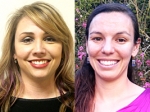

Amber Valentine is a Speech-Language Pathologist who graduated from the University of Kentucky with her MS in Communication Disorders. She is a Board Certified Specialist in Swallowing and Swallowing Disorders and an International Board Certified Lactation Consultant. She worked for Baptist Health Systems, Inc for 8 years before moving to Florida where she worked for Wolfsons Children’s Hospital and Mayo Florida. She is now back in Kentucky working for Baptist Health Lexington. She has experience in adults and pediatrics with feeding and swallowing difficulties including: bedside swallow evaluations, Modified Barium Swallow studies, FEES, and pediatric feeding evaluations including NICU. She has provided guest lectures for the University of Kentucky and the University of Louisville on feeding and swallowing topics. She has presented at the hospital level, local, state, national, and international levels on pediatric feeding/swallowing and breastfeeding.
Lillian Scott is a speech-language pathologist and certified lactation counselor employed by Baptist Health Lexington in Lexington, Kentucky. She received master’s degree in Speech-Language Pathology from Gallaudet University. She received dual bachelor degrees in Communication Sciences and Disorders and Special Education from the University of Kentucky. She has worked with pediatrics and adults in the areas of speech, language, and swallowing. She has NICU, Mother/baby, and outpatient clinical experience working with feeding dyads of breast and bottle feeding infants. In the area of adults and pediatrics, she has experience with clinical swallowing evaluations and Modified Barium Swallow Studies. She has experience with adult Fiberoptic Endoscopic Evaluations of swallowing (FEES). Her interest is in successful feeding by mouth for infants with complex medical histories and promoting breastfeeding in cultures that are not likely to receive the supports for feeding difficulties due to knowledge, costs, and/or access.
Objective 1: The participant will identify at least three populations at risk for feeding difficulty;
Objective 2: The participant will be able to explain at least two commonly seen characteristics in each of these populations that may adversely impact feeding;
Objective 3: The participant will be able to list at least two strategies for each of the populations to enhance feeding success at the breast.
Feeding is the most complex task of infancy, even in term babies with no complications. There are many diagnoses, conditions, syndromes, and co-morbidities that can impact feeding in neonates and infants. This talk will briefly highlight many of those, but we will focus on three specific populations of interest –Neonatal Abstinence Syndrome, Infants of Diabetic Mothers, and Downs Syndrome. We will discuss the specific implications these conditions can have on feeding, why these infants may have difficulty, and the classic symptoms one could expect to see. The differences between delayed and disordered feeding will also be addressed. Strategies and adaptions for breast feeding will be discussed. Positioning and external strategies will be explained. Case studies will be shared at the end of the presentation.


Elizabeth M. Johnson, MA is a trauma educator and peer support advocate in private practice. She helps people understand how sexual abuse affects sexual and reproductive health. She looks at how sexual abuse affects breastfeeding for example but also how traditional sex education ignores issues like how past abuse affects consent, teen pregnancy and risky behavior. Using a trauma lens, Elizabeth talks about everything sexual health related from Asking (about abuse) to Z(zzzz's) and everything in between. Elizabeth is the only educator in the world specializing in training and consulting on this topic.
In addition to training, speaking and consulting, Elizabeth has facilitated a free, weekly peer support group for sexual abuse survivors for over three years. She holds a Masters of Arts degree in Womens Studies from Southern Connecticut State University. Elizabeth identifies as a rape survivor and has worked with survivors since 2005. She lives in Durham, NC with her family.
Topic: When Breast Isn't Best: Challenges and Opportunities In Breastfeeding for Sexual Abuse Survivors - [View Abstract]
Objective 1: Identify prevalence and risk factors of sexual abuse;
Objective 2: Describe how sexual abuse can impact ability and desire to breastfeed including “red flags”;
Objective 3: Define trauma-informed approach and understand how it relates to supporting new families who want to breastfeed.
The benefits of breastfeeding are well known. Less known is how pervasive and long-lasting the effects of sexual abuse can be. As many as 1 in 3 women are survivors of contact sexual abuse. And, unfortunately, sexual abuse is rarely over when it's over.
Most new parents state that they want to at least “try” breastfeeding. And yet everyone knows someone for whom breastfeeding “didn’t work”. While informed care can sometimes help families stick with breastfeeding, even well-intended support can be triggering. Providers who deal with new families must have a working knowledge of sexual abuse as well as a trauma-informed approach in order to effectively support breastfeeding families. Learn how abuse can impact ability and desire to breastfeed, red flags that could indicate a history of sexual abuse and practical tools to support all families in a sensitive way.


Glenda currently works at Duke University Hospital as an inpatient IBCLC. She has been with Duke since September 2017. Prior to working at Duke she was an Assistant Professor at the University of Louisville School of Nursing, primarily teaching the maternal newborn courses. She graduated with a BSN from the University of Louisville in 1990, a MSN from Old Dominion in 2004, and is currently a PhD candidate at the University of Louisville and will graduate May 2018. She is testing a new breastfeeding assessment instrument she created. She first became certified as an IBCLC in 1997 and took the certification exam for the 3rd time April 2017. She has worked maternal newborn, women’s health, and lactation during her 27 years as a RN. She has presented internationally (but the conference was in Louisville), nationally, and locally. She is a member of ICLA and USLCA.
Objective 1: Compare and contrast a qualitative research study and quantitative research study;
Objective 2: Identify key components of a research study;
Objective 3: Examine ethical considerations of a research study.
Reading let alone critically analyzing a research article can be quite intimidating to a non-researcher lactation consultant. How many lactation consultants find a research only to read the abstract, introduction, and conclusion to skip over the parts of the article they do not understand? Lactation consultants must provide evidence-based, ethical care to mothers, their baby, and their family. Lactation consultants can be instrumental and part of a multi-disciplinary research team. This presentation will help demystify research articles by providing ten practical tips for the non-researcher IBCLC. Not only will the lactation consultant feel more confident about reading the research article but the presentation will offer a great review of research concepts that are included in the IBLCE exam blueprint and prepare exam candidates for the IBLCE exam.
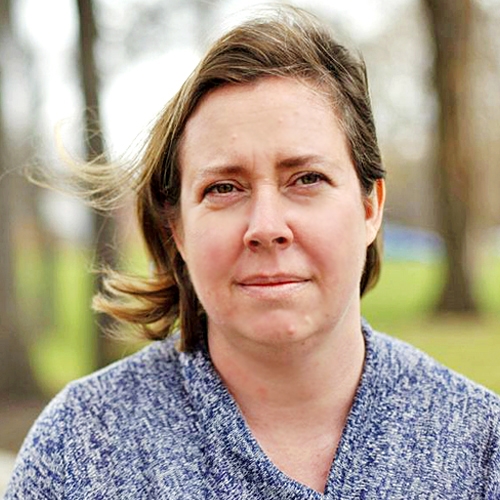

Michelle Pensa Branco MPH IBCLC is a lactation consultant and public health advocate. In addition to her clinical practice, which has included in-hospital, outpatient and private practice settings, she advocates for improved maternal-child health practices at the local, national and global level. She has a particular interest in the impact of trauma to breastfeeding families, models of peer support to improve breastfeeding outcomes and the application of health communication principles to the promotion and protection of breastfeeding. Michelle serves as the Director of Peer Support Programs and provides clinical lactation expertise for Nurture Project International, the only international NGO focused exclusively on infant feeding in emergencies. With Jodine Chase, she co-founded a Canadian non-profit organization, SafelyFed Canada. She is also an active member of the Ontario Public Health Association’s Breastfeeding Promotion Working Group. Michelle has previously served as the Vice-Chair of La Leche League Canada, the Communications Director for the Canadian Lactation Consultants Association as well as the Toronto Coordinator of INFACT Canada. When she is not travelling for work, Michelle stays close to home, living with her family just outside Toronto, Ontario, Canada.
Topic: Keeping the Fox Out of the Chicken Coop: Safeguarding Your Reputation Against Baby Feeding Industry Influence - [View Abstract]
Topic: Playing Well with Others: Collaborating in High Conflict/Low Trust Settings - [View Abstract]
Topic: Watching Our Words: Is Risk-Based Language Always the Right Choice? - [View Abstract]
Objective 1: Describe the difference between intra- and inter-professional collaboration;
Objective 2: Explain how collaboration failure impacts lactation outcomes and provide an example from their own practice or the case studies presented;
Objective 3: Describe the organizational impacts of unproductive conflict;
Objective 4: Define "stretch collaboration"
Collaboration is the foundation of the work of lactation professionals. As allied health providers, the team approach is at the centre of our professional relationships. Differences in professional practice and standards of care are aggravated by health care systems that are fragmented and operate in silos, while the high emotion and urgency of infant feeding concerns interfere with reasoned collaborative decision-making. Where adequate training, workplace policies and management oversight fail, conflicts within the team may escalate to incivility, lateral violence and bullying. IBCLC must be able to name and act when conflict crosses these boundaries.
At a policy level, the problems facing breastfeeding are among the most "wicked" of public health's "wicked problems".
In perpetually resource- limited settings, the challenges of policy-making, good governance and innovative programs require effective collaboration and co-operation within and across organizations.
Limited time and energy is available for the enormous work required to provide excellent care to families and create societies that fully support them to breastfeed their children for as long as they wish to. Moreover, because of the intensity of the "wicked" problems we face and the urgency of resolving them both in individual cases and at the policy level, conflict and erosion of trust often occur. Because we cannot only work with those we would like to work with to accomplish our goals, we must learn "stretch collaboration", explored using Adam Kahane's model of working in absence of friendliness, agreement or trust.
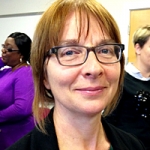

Sally is an IBCLC in Leicester, UK, and has been supporting families there, particularly families from BME communities, for 15 years. Her interest in multi-culturalism and diversity has grown, from teaching French in a large community college, to her current role leading Leicester Mammas CIC, a city-wide community breastfeeding peer support programme developed and delivered by and for local mothers. She has previously been a La Leche League leader, and was part of the pioneering LLL Peer Counsellor Programme team, under the leadership of Sarah Gill, who brought the LLLPCP from the US to the UK. A core element of her approach to protecting, promoting and supporting breastfeeding is its role in the wider society: mitigating poverty, health inequalities and social isolation, and creating strong communities of women from all walks of life. She is has recently completed an MA in Integrated Provision for Families in Early Years. Sally is Deputy Chair of LCGB (Lactation Consultants of Great Britain).
Objective 1: Recognise potential links between stress/anxiety and suboptimal outcomes for pregnancy/birth, and therefore infant feeding outcome;
Objective 2: Recognise the importance of positive support, especially community peer support, in enabling ‘vulnerable’ women to achieve their breastfeeding goals;
Objective 3: Describe the different stress factors for women from BME communities, depending on whether they were born in the UK, or have come to the UK from other countries;
Objective 4: Recognise that culture is fluid, and explore/challenge stereotypes of certain groups – especially Muslim women – as passive and vulnerable;
Objective 5: Discuss the numerous ways in which breastfeeding can reduce stress, and empower mothers – and conversely how formula feeding may increase stress and anxiety.
Breastfeeding is valued among BME parents in the UK for cultural/religious reasons. BME communities experience high levels of stress associated with socio-economic inequalities and other factors. Women experiencing depression and anxiety may find breastfeeding alleviates or exacerbates their symptoms, dependent on the quality of breastfeeding support received, and success or otherwise in overcoming early challenges.
Little is known however about how stress impacts on infant feeding, or how women who have faced significant stress feel about their experiences around pregnancy, birth and feeding. This study explored the experiences of mothers in a multi-ethnic, inner-city community, and the effectiveness of community breastfeeding peer support in helping overcome stress-related barriers. I also considered the experiences of the previous generation within the same community and how they compared to the current generation. I found that stress factors impacted heavily on breastfeeding outcomes. Peer support is an important factor in helping women achieve their goals, mitigating stress.


Joy MacTavish, MA, IBCLC, RLC is an International Board Certified Lactation Consultant and certified Holistic Sleep Coach focusing on the intersections of infant feeding, sleep, and family well-being. Through her business, Sound Beginnings, she provides compassionate and evidence-based support to families in the greater Seattle area, and virtually everywhere else. She entered the perinatal field in 2007 as birth and postpartum doula, and childbirth and parenting educator. Joy holds a Master of Arts in Cultural Studies, graduate certificate in Gender, Women and Sexuality Studies, and two Bachelors degrees from the University of Washington. She enjoys combining her academic background, analytical skills, and passion for social justice into her personal and professional endeavors. Joy serves as an Advisory Committee Member and guest speaker for the GOLD Lactation Academy. When not working or learning, she can be found homeschooling, building LEGO with her children, or dreaming up her next big adventure.
Topic: Full-Term Breastfeeding/Chestfeeding: Benefits, Considerations, and Ways to Offer Support - [View Abstract]
Topic: Mindful Breastfeeding: How Lactation Professionals Can Support Calm and Connection - [View Abstract]
Topic: Sending Reports: What’s in it for IBCLCs? - [View Abstract]
Topic: Supporting Clients Facing Fertility Treatment - [View Abstract]
Topic: The Intersection Between Lactation, Sleep, and Family Well-Being - [View Abstract]
Topic: Weaning: Supporting Families Stopping Lactation and/or Ending Their Breastfeeding/Chestfeeding Relationship - [View Abstract]
Objective 1: Identify at least three (3) reasons why families may need or desire to wean;
Objective 2: Describe the emotional and logistical considerations that families will need to make prior to or during the weaning process;
Objective 3: Be able to compassionately discuss at least three (3) strategies that support the weaning process.
While lactation support spans the time from the prenatal period through weaning, there is less available information about the process of weaning. We know that there are a variety of reasons why families need or desire to stop lactation. We also know that there are emotions and logistics involved in ending a breastfeeding/chestfeeding relationship. Depending on the goals, timeline, and individual context of each dyad there are a variety of factors that need to be considered by the family. Unfortunately, these families often feel that the clinical information and emotional support available for weaning is lacking.
Evidence-based support presented in a compassionate manner can make a world of difference to the individual's decision-making process and overall weaning experience. For lactation supporters and professionals, being able to support families who are stopping lactation and/or ending their breastfeeding/chestfeeding relationship is a vital skill. This presentation will offer research-based information about the reasons for weaning, steps lactation supporters and professionals can take when working with families, and scripts for compassionate phrasing while offering this important information and support.


Lisa Huffstetler is the mother of six children with years of personal breastfeeding experience. She has been an International Board Certified Lactation Consultant since 2011. Lisa began working with breastfeeding families as a Peer Counselor in 2008 as part of the Gaston County, North Carolina WIC's implementation of their Peer Counselor Program. She is passionate about helping new moms become successful in reaching their breastfeeding goals. Lisa is currently working as the Gaston County WIC agency's Lactation Consultant. She enjoys teaching breastfeeding classes, conducting staff trainings and working to keep staff updated on breastfeeding policy.
As a new grandmother, one of her new found interests is helping grandparents support their children appropriately in their new role as parents, especially in effective support of breastfeeding.
Objective 1: Describe how Peer Counselor hospital visitation with newly delivered patients can help breastfeeding duration, breastfeed rates in your Peer Counselor Program and enhance your Peer Counselor Program in general;
Objective 2: Explain how to start a hospital visitation program for your Peer Counselor Program at your local hospital;
Objective 3: Discuss how to overcome obstacles encountered when setting up visitation for Peer Counselors at your local hospital
Hospital visits from a Peer Counselor just after delivery can have a tremendous impact on breastfeeding for mom and baby. Evidence-based research shows that Peer Counselors can share an important role in the success of breastfeeding for families. Peer Counselors making an early connection and reminding families that there is someone here to help them with their breastfeeding journey, now and after mom and baby discharge from the hospital, can be very comforting for those nervous new parents. Often, a short visit from a Peer Counselor to reassure a new mother that she is right on track with breastfeeding is just what mom needs to encourage her for the learning period she is going through. Learn about the success stories of a Peer Counselor Program from the implementation of hospital visitation through years of success in hospital visits and the difference it has made in their Peer Counselor Program participation and breastfeeding numbers.
There are challenges to getting Peer Counselor hospital visits started. It may not be as easy to get your foot in the door as you would think. We will discuss some of the red tape situations you may encounter as you start trying to set up hospital visits. Adding hospital visits to your Peer Counselor activities can have a positive impact on your Peer Counselor Program and increase breastfeeding rates for your area.


Tina Revai came to breastfeeding professionally in her practice working with families as a nurse of 25 years. However, once becoming a mother, her understanding of breastfeeding as an important factor in the feeling of success (or not) in parental role transition became experientially apparent. In order to support others towards self-defined breastfeeding success, Tina became a La Leche League Leader in 2006 and an IBCLC in 2007. She is currently co-president of the British Columbia Lactation Consultants Association and continues to work directly with families in her community of Port Alberni, on beautiful Vancouver Island, Canada.
Objective 1: Explain the importance of theory to professional practice;
Objective 2: Outline the state of theory development within clinical lactation practice;
Objective 3: Describe the steps of the Relational Breastfeeding Framework to support clinical lactation practice.
The Relational Breastfeeding Framework is a process driven model for clinical breastfeeding supports that is consistent with the origins of the IBCLC profession. Little has been published that theorizes pragmatically about lactation support, bridging both the instrumental and relational aspects of this work. The introduction of this framework is an important contribution to theory development within the profession in that it unravels the complexity of reflective and dyad centered care, making clear the process for those who seek to practice in this way. This presentation makes the case that relational breastfeeding support is consistent with the underlying philosophy and history of the profession and should be the goal of all lactation consultants. However, equally relevant, another purpose to this presentation is to spark a generative debate about what we do and how we do it.
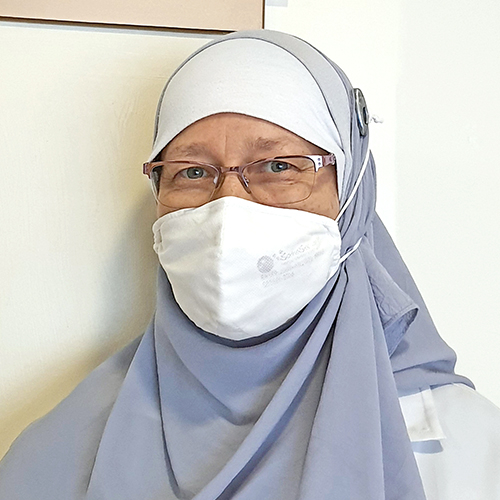

Evelyne Ruf is a family physician from France, and an International Board Lactation Consultant (since 1993). More than 25 years ago, she shifted to the United Arab Emirates (UAE), working for the Ministry of Health, in Sharjah MCH Center. She opened there the first Lactation Clinic in the UAE, with the support of volunteers from Breastfeeding Friends (BFF), which she had co-founded.
Five years ago, the Lactation Clinic has been shifted to the Family Health Promotion Center, where it continues to offer, to a very cosmopolitan population, skilled lactation support as well as assessment and release of tethered oral tissues.
A member of the National Breastfeeding Committee, Evelyne has been involved in the Baby-Friendly Hospital Initiative as a lecturer, trainer, adviser and assessor. Her workplace became the first Baby-Friendly Health Center in the UAE and received the IBCLC Care Award (community category) in 2015.
She has also been actively involved in the Sharjah Baby-Friendly Emirate Campaign, a multi-sectorial initiative launched in 2012, and presented its achievements during Gold Lactation 4 years ago.
With her husband of 34 years, she is the proud and grateful mother of 5 grown-up breastfed children and the grandmother of 4 breastfed little ones.
Topic: The Sharjah Baby-Friendly Campaign: A Community-Based Model for Breastfeeding Promotion, Protection and Support - [View Abstract]
Objective 1: Discuss the need of multi-sectorial initiatives to increase exclusive breastfeeding rates;
Objective 2: Describe the key components of Sharjah Baby-Friendly Campaign (SBFC): from conception to implementation;
Objective 3: Discuss the challenges encountered and ways to overcome them.
Despite the recommendations and various initiatives to promote breastfeeding, most women don’t reach the exclusive breastfeeding target in both developed and developing countries. Similar has been the case in the United Arab Emirates.
Therefore based on the decree by the ruler of the Emirate of Sharjah, UAE, a multi-sectorial, multi-directional breastfeeding campaign-the Sharjah Baby-Friendly Campaign- was launched in March 2012. It consisted of 4 initiatives namely Baby-Friendly Health Facility, Mother-Friendly Workplace, Breastfeeding-Friendly Nursery and Mother-Baby Friendly Public Place. Once an organization met the criteria for any of these initiatives it was awarded the designation or accreditation of that initiative.
The campaign initiatives worked through capacity building of healthcare workers, developed breastfeeding education content and resources, and conducted community outreach through social media.
The positive impact of the campaign on breastfeeding promotion, protection and support is evident by the tripled exclusive breastfeeding rate at 6 months over a 5 years period.
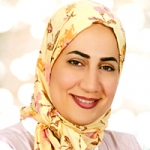

Rania Abdou is a Pediatrics and neonatology consultant at Faculty of medicine, Ain shams university where she teaches Pediatrics and neonatology courses. She earned a Diploma in the clinical nutrition from the European society for clinical nutrition and metabolism. Dr. Rania is also a certified international lactation consultant since 2013. She has dedicated much of her time to the improvement of breastfeeding practice between Egyptian women. Previously, she worked as a clinical director of the neonatal intensive care unit of ain shams university pediatric hospital and vice-director of the pediatrics department at the ain shams specialized university hospital.
Objective 1: Discuss what are the herbal galactagogues;
Objective 2: Discuss traditional usage of fenugreek;
Objective 3: Discuss the effect of fenugreek on milk supply.
The commonest reason of interrupted exclusive breastfeeding is assumption of insufficient breastmilk. Fenugreek has been traditionally used by Egyptian women to increase milk supplementation. However, this practice has not been scientifically evaluated yet. We elucidated fenugreek-tea effect on expressed breast milk quantity by a Comparative study on 2 groups of healthy mothers according to fenugreek consumption whom baby was admitted to Ain shams University NICU for more than 2 weeks and expressed breastmilk using manual breast pump divided into. Results showed earlier increase in mean breastmilk-volume in fenugreek group. Significant difference of pumped breastmilk quantity between groups at day 3 & 8 where fenugreek group showed higher volume yet at day 15 the net daily volume showed no significant difference between both groups. We concluded that fenugreek consumption may affect earlier stages of lactogenesis so can be used for satisfaction and reassurance in those stages.
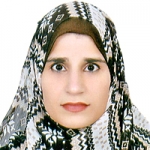

Doctor Asma'a Kurdi , Syrian family physician MRCGP member certified since October 2013, was the first lactation consultant doctor in Ajman certified on October 2008 ,recertified October 2013. worked as a GP in UAE , Ajman PHC since 02/2006 till 08/ 2016, with big efforts to enhance breastfeeding practice among colleagues and patients, was an active member in the breastfeeding support group ,she presented many lectures in the basic 20 hours breastfeeding training courses for health workers in Ajman .a mother of 4 children , 3 of them are PKU , with her knowledge and faith in breastfeeding she managed to breastfed them for more than 2 years and kept them healthy and normal children. She had special interest in PKU researches and but huge efforts to initiate a PKU family association in UAE . an active member in Arabic PKU mothers what's up support group ,and low protein recipes instagram page .
Objective 1: Describe PKU history, clinical manifestation, and neonatal screening;
Objective 2: Recognize the guidelines for PKU management and new areas of research;
Objective 3: Define maternal PKU, and its management;
Objective 4: Describe why breastfeeding is a choice for PKU baby feeding, and explain the feeding strategies, the challenges, and define the role of the lactation consultant in the management of this condition;
Objective 5: Outline a real-life case study of a successful experience
Breast feeding can be challenging in some special situations, phenylketonuria is one of these conditions that requires a lot of knowledge and support.
PKU is an inherited metabolic disorder that needs a special protein free diet to be followed lifelong, to grow normally, to avoid the irreversible and severe intellectual impairment and developmental abnormality.
Years ago PKU was an absolute contraindication for breastfeeding, but with more research on the disease and the breast milk components, it is now strongly suggested to breastfeed a PKU baby along with his or her special phenylalanine free formula under close supervision from a dietitian and experienced breastfeeding supportive pediatrician.
It is a difficult but achievable task, a prime example is my 3 PKU children who I managed to breastfeed for almost 2 years. Along with their PKU formula and special low protein diets they are enjoying healthy, normal mental and physical development.


Felisha Floyd, BS, CLC, IBCLC is currently Lactation Coordinator for Hospital Corporations of America system in Florida. She also offers infant feeding support, mentorship, and education to her local community via her private practice, Beyond Breastfeeding. Felisha is the founder of Our Brown Baby, a community based breastfeeding support group, which serves to provide specialized culturally sensitive breastfeeding support to families of color. In addition to these roles, Felisha is one of the founding mothers and current President of the non-profit The National Association of Professional and Peer Lactation Supporters of Color, affectionately known as "NAPPLSC". She is also a Center for Social Inclusion First Food Equity Cohort member. Previously, she worked as a Women, Infants, and Children (WIC) Breastfeeding Peer Counselor and Breastfeeding Coordinator.
Fueled by her professional and personal passions to ensure that all mothers have access to quality breastfeeding support and resources, she has fervently pledged to reduce breastfeeding disparities in the African American community. To this end, she continually makes efforts to help increase breastfeeding rates in the African American community by unapologetically fighting that which contributes to racial health disparities. Fearlessly obsessive, she is affectionately known as the social media guru "Blactavist!" (Black Lactation Activist). This online community consists of approximately 38,000 supporters on Twitter, Facebook and Instagram, and is dedicated to empowering African American families to breastfeed.
Felisha is a national leader, an experienced trainer and speaker, and a consultant. Through her aforementioned roles, she has provided training programs across the US on topics of clinical breastfeeding, racial equity, first food justice, mentorship, power of collective impact and more. Her previous experience includes national trainings for WIC and professional consultancies for WIC Loving Support Program and the Boston Medical College's Communities and Hospitals Advancing Maternity Practices grant funded program.
Dedicated to improving the level and diversity of lactation support nationally, Felisha trains and mentors aspiring lactation consultants through her private practice. She is the co-author of Clinical Internships for the Next Generation of IBCLCs, an article featured in The Journal of Human Lactation. Felisha also serves with high honor as a member of the Global Board of Directors for Mom2Mom Global, the Advocacy Chair for the State of Florida Breastfeeding Coalition, Secretary of the Board of Directors for the United States Breastfeeding Committee (USBC). She has been honored as a recipient of the Inaugural Concrete Rose Award by Reaching Our Sisters Everywhere and recognized by USBC with the Legacy Award.
Objective 1: Identify a core terms and concepts that contribute to systemic racism;
Objective 2: Define at least three barriers that impact disparities in breastfeeding;
Objective 3: Provide two examples of advancing racial equity;
Objective 4: Participants will personally reflect on how implicit bias impacts their actions;
Objective 5: Describe concrete one approach that can advance racial equity.
We deepen understanding of false conceptual assumptions that define racial equity by critiquing standards of organizational operations. Strengthening awareness to lactation providers by defining and determining key terms which identifies structural racism and reduces superficial outcomes. By alternating racial equity from a “hot topic” to systemic revolution to deconstruct barriers by challenging these assumptions by concepts. Identifying standards that ensure transformation and shift gears from idealist views on racial equity to strategies to promote impactful solutions. Reevaluating promises to actions which Increases understanding of racial equity through policies, practices and procedures. Empowering audience to determine their baseline and understanding of racial equity to build compacity to their ability to morph from ally to accomplice. Giving guidelines, theories and concepts to build an organizational framework to develop and implement plans to incorporate into practices. Despite a growing interest to being sympathetic to racial equity efforts, this learning environment will improve understanding of systems of racism which impact health outcomes. Giving the learners the ability to examining concrete approaches to advancing racial equity.
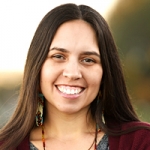

Camie Jae Goldhammer, MSW, LICSW, IBCLC, (Sisseton-Wahpeton) is a Clinical Social Worker and Lactation Consultant. Camie received her Master of Social Work degree from the University of Washington in 2006, specializing in Maternal Mood Disorders and the affects of complex/Intergenerational trauma on attachment, bonding and the parenting practices of Native families.
Camie is the founder and chair of the Native American Breastfeeding Coalition of Washington. She is also a founding mother and President-Elect of the National Association of Professional and Peer Lactation Supporters of Color. In 2013 she became Washington state's first Native American IBCLC. Camie is a consultant with CHEER and is also a part of the Center for Social Inclusion’s First Food Racial Equity Cohort. Recently she worked as a Campaign Director with MomsRising working to bring paid family and medical leave to Washington State which was signed into law in July 2017. She is now a member of the MomsRising breastfeeding team. She is a National leader on topics of racial equity and first food justice and recently launched the Indigenous Breastfeeding Counselor training.
Topic: Historical Trauma, Racism and White Privilege: The Barriers to Breastfeeding Success - [View Abstract]
Objective 1: Students will be able to define historical trauma and identify how it impacts attachment and bonding;
Objective 2: Students will be able to list 3 health conditions that disproportionally affect Communities of Color as a result of low breastfeeding rates;
Objective 3: Students will be able to assess how implicit bias impacts the way we serve families, particularly Families of Color.
Too often when discussing barriers to breastfeeding there tends to be a focus on education, poverty, and familial support. However, when we truly look at the causes of health disparities and inequities it is racism and discrimination that are at fault. For many of us, this can be a difficult realization and conversation to have. In this session, Ms. Goldhammer will discuss how Communities of Color are impacted by intergenerational trauma specifically when it comes to attachment and bonding as well as the role that racism and white privilege play in today’s modern day field of lactation. She will conclude with ways in which we can create meaningful impact and further advance racial equity in our field and most importantly in the communities we serve.


Dianne Cassidy is a Lactation Consultant in Rochester, New York with Advanced Lactation Certification. Dianne works in Private Practice, and in a busy Pediatrician office supporting mothers and babies. She also teaches prenatal breastfeeding and childbirth in the hospital setting. In the fall of 2013, Dianne completed her MA in Health and Wellness/Lactation. She is dedicated to serving mothers and babies, and has the unique ability to identify with the needs and concerns of new mothers. Dianne has worked extensively with women who have survived trauma, babies struggling with tongue tie, birth trauma, milk supply issues, attachment, identifying latch problems, returning to work and breastfeeding multiples.
Dianne has 3 biological children, including twins, 3 step children and a wonderful husband. Dianne is an author and public speaker and enjoys teaching caregivers how to support new families through breastfeeding struggles.
Topic: Out of the Blue: Post-Partum Mood Disorders and Breastfeeding - [View Abstract]
Topic: Paying it Forward, Support for the Breastfeeding Mother and Baby - [View Abstract]
Topic: Traumic Life Experiences and how they Affect the Breastfeeding Mother - [View Abstract]
Objective 1: Learners will be able to identify 3 risk factors associated with postpartum mood disorders;
Objective 2: Learners will be able to identify ways to support the mother/baby dyad breastfeeding with the risk of postpartum depression;
Objective 3: Learners will be able to analyze evidence-based information regarding postpartum mood disorders and the implications for breastfeeding.
It is well known that breastfeeding is beneficial to both mother and baby. What happens if breastfeeding is not well established? Researchers are looking closer to postpartum mood disorders and what influence breastfeeding may have in a new mother's psychological well being.
Postpartum depression has been linked to low breastfeeding rates, as well as lower duration rates. Postpartum depression falls under the diagnosis of "major depressive disorder with peripartum onset during pregnancy or in the weeks following delivery" (Bascom & Napolitano, 2015). It has been estimated that postpartum mood disorders, strike an estimated 10-20% of new mothers (Bascom & Napolitano, 2015). However, it has been argued that this number reflects only those women who have sought help for their symptoms. The probability that more women are affected by postpartum mood disorders is high.
Postpartum mood disorders adversely affect not only the health of the mother, but also the relationship with her partner, interaction with her newborn and infant growth (Yusuff, Tang, Binns, Lee, 2015). There are several predictors that can help determine if a woman is at risk for postpartum mood disorders, including mental health history, social status, and labor and delivery. Researchers have found that when more medical interventions were used during labor, the higher the depressive symptoms for the mother. This presentation will aid personnel working with new families to be aware of the signs and syptoms of postpartum mood disorders and how to preserve the breastfeeding relationship.


I was born in Detroit Michigan and graduate from M.L. King High School in 2001. I completed a B.S. in Chemistry at Oakland University in Michigan and Ph.D. in Chemistry at Vanderbilt University. After completing postdoctoral research at Memorial Sloan Kettering Cancer Center, I began an independent career at Vanderbilt In 2014.
Objective 1: Understand the infection process;
Objective 2: Understand how children are protected via breast milk;
Objective 3: Understand what pathogens are currently priorities to defeat.
When antibiotics were first broadly introduced in the 1930s, they were considered the most important advancement in modern medicine. Deaths attributed to communicable diseases were drastically reduced leading to the belief that infectious diseases were conquerable. Bacteria, however, counter antibiotic chemotherapy with resistance mechanisms that result in the emergence of infections untreatable by the current artillery of therapeutics. Efforts to develop new antimicrobial agents with unique structural motifs and novel modes of action to fight multi-drug resistant pathogens are ongoing. During this seminar, I will discuss our groups ongoing efforts to develop human milk oligosaccharides as novel antimicrobial agents.
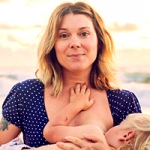

Meg is the mother of three breastfed boys and lives with her husband and children in QLD, Australia. She is an International Board Certified Lactation Consultant (IBCLC) in private practice and works with parents to help them reach their breastfeeding goals. She has a degree in psychology and her prior work was is in counselling and sexual health. She was a La Leche League Leader (breastfeeding counsellor) for seven years before becoming an IBCLC. Meg is the author of two books including, "Boobin' All Day...Boobin' All Night. A Gentle Approach To Sleep For Breastfeeding Families". She has published articles in numerous parenting magazines and websites. She was also filmed for a short documentary, "Lactaboobiephobia", based on one of her blog posts which was released in 2016.
Topic: Breastfeeding With A Tongue Tie. How Can We Help When A Tie Revision Is Not Possible? - [View Abstract]
Topic: Exclusively Breastfeeding Triplets-Case Studies - [View Abstract]
Topic: Social Media Backlash – Addressing Emotionally Charged Responses - [View Abstract]
Topic: What to Do When the Laid-Back Breastfeeding Position Doesn’t Work…Self Attachment, the Flipple Technique and the Koala Hold All With a “Hands Off” Approach - [View Abstract]
a) Identify a mother/baby dyad who would benefit from an alternative to the “biological nursing” approach and have an understanding of different case studies where alternatives have been successful;
b) Facilitate and explain the flipple technique to the parent/s. Including the optimal position of both mother and baby while helping facilitate a mother/baby dyad trying different holds including the koala hold and side lying position while using the flipple technique;
c) Discuss why the “look” of the latch is irrelevant, what questions to ask the mother when helping with the latch and what information to gather to get a clear picture of what is going on for the mother and baby.
As Lactation professionals we are taught and often reminded of the “laid back breastfeeding position” or “biological nursing” and how this can best facilitate a great latch. While this can be very useful and helpful in most cases, there will be circumstances where this position does not lead to a better latch and leaves the professional, the mother and the baby continuing to struggle.
This presentation will explain other useful and practical tips on how to help facilitate a baby to get the best latch possible, why the “look” of the latch does not matter, all while empowering the mother and baby to do it themselves, without physical help from the professional. The techniques covered include self-attachment in the side-lying position, self-attachment in the koala hold and trying the flipple technique to get as much breast tissue into the baby’s mouth as possible. This can be helpful for all babies struggling with latch including babies with tongue and/or lip ties. This presentation will include video examples and practical tips.
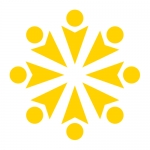

Felisha Floyd, BS, CLC, IBCLC, is currently Lactation Coordinator for Hospital Corporations of America system in Florida. She also offers infant feeding support, mentorship, and education to her local community via her private practice, Beyond Breastfeeding. Felisha is the founder of Our Brown Baby, a community based breastfeeding support group, which serves to provide specialized culturally sensitive breastfeeding support to families of color. In addition to these roles, Felisha is one of the founding mothers and current President of the non-profit The National Association of Professional and Peer Lactation Supporters of Color, affectionately known as "NAPPLSC". She is also a Center for Social Inclusion First Food Equity Cohort member. Previously, she worked as a Women, Infants, and Children (WIC) Breastfeeding Peer Counselor and Breastfeeding Coordinator.
Fueled by her professional and personal passions to ensure that all mothers have access to quality breastfeeding support and resources, Felisha has fervently pledged to reduce breastfeeding disparities in the African American community. To this end, she continually makes efforts to help increase breastfeeding rates in the African American community by unapologetically fighting that which contributes to racial health disparities. Fearlessly obsessive, she is affectionately known as the social media guru "Blactavist!" (Black Lactation Activist). This online community consists of approximately 38,000 supporters on Twitter, Facebook and Instagram, and is dedicated to empowering African American families to breastfeed.
Dianne Cassidy, MS, IBCLC, ALC, CCE, is a Lactation Consultant in Rochester, New York with Advanced Lactation Certification. Dianne works in Private Practice, and in a busy Pediatrician office supporting mothers and babies. She also teaches prenatal breastfeeding and childbirth in the hospital setting. In the fall of 2013, Dianne completed her MA in Health and Wellness/Lactation. She is dedicated to serving mothers and babies, and has the unique ability to identify with the needs and concerns of new mothers. Dianne has worked extensively with women who have survived trauma, babies struggling with tongue tie, birth trauma, milk supply issues, attachment, identifying latch problems, returning to work and breastfeeding multiples.
Dianne has 3 biological children, including twins, 3 step children and a wonderful husband. Dianne is an author and public speaker and enjoys teaching caregivers how to support new families through breastfeeding struggles.
Carmela Kika Baeza, MD, IBCLC, is a family medicine MD, bachelor´s degree in Public Health Education, and IBCLC since 2005. She is also a BFHI Evaluator and the current president of the Spanish Lactation Consultant Association (AECCLM). She works in a private Family Wellness Clinic, Raices, as person in charge of the lactation program, which includes two IBCLCs attending breastfeeding families and an extensive offer of breastfeeding training for health care professionals and breastfeeding peer counsellors. The team has trained over three thousand doctors, midwives and nurses from both the Spanish National Health Service and the private sector in Spain. She is a frequent lecturer at national conferences, and has also lectured internationally, both on-site and online. She is the author of several scientific papers on breast pain, mastitis and tongue tie. She is also the author of a breastfeeding/parenting book, “Amar con los Brazos Abiertos” (To Love with Open Arms). She is married to Carlos and they homeschool their four children.
Paulina Erices, BS, IBCLC, RLC, is the mother of three children, a bilingual Lactation Consultant (IBCLC) in private practice and Maternal Child Health Specialist for the Jefferson County Health Department in Colorado. She is originally from Chile and has lived in the US for almost 15 years. She holds a Bachelor of Science in Psychology from PennState and is currently completing her Masters of Science in Leadership and Organizations from the University of Denver. She has been a La Leche League Leader for 12 years where she has held different mother and Leader support roles across the US. She is a member of several groups working to improve child health and well-being, including the Early Childhood Colorado Partnership, the NICU Consortium, and the Community Leaders in Health Equity. Paulina's goal is to elevate and empower the voices of the community to effectively improve systems of care through advocacy and policy. Paulina lives in Littleton, Colorado where she spends her free time birding with her family and training her dog Aussie.
Fiona Lang-Sharpe, IBCLC, NAMCM, is a Birth Doula and International Board Certified Lactation Consultant in private practice in Edmonton, AB, Canada. Fiona has over 20 years of experience attending births, supporting mothers post partum, and offering lactation case management services. Having studied in England under the National Association of Maternal and Child Welfare, Fiona moved to Canada in 1989 and after having her first born son was accredited through La Leche League Canada as a Leader and went onto obtain her certification as an IBCLC. Fiona's experience in perinatal health along with her interest in technology and social media and passion for quality education makes her an excellent fit for GOLD Conferences International. Fiona is one of the first voices you'll hear as one of GOLD's online Master of Ceremonies, and is also often one of the first faces you'll see, online and in person, as she represents GOLD at industry events and via social media. Fiona is highly anticipating an expanding role with GOLD, as GOLD increases it online offerings.
Objective 1: Delegates will be able to define what breastfeeding self-efficacy is;
Objective 2: Delegates will be able to clearly describe why breastfeeding self-efficacy is important and the consequences of low breastfeeding self-efficacy;
Objective 3: Delegates will be able to identify at least 3 examples of changes they can make to their own practice to help improve their clients’ breastfeeding self-efficacy
The term “breastfeeding self-efficacy” gets thrown around a lot, but what does it really mean? How do we define it, why is it important and what can we be doing as lactation support providers to empower parents and have a positive impact on breastfeeding self-efficacy? Is there anything that we’re doing in our approach to breastfeeding support that is unintentionally having a negative impact? Does breastfeeding self-efficacy look the same for everyone, and how do we target marginalized communities? These are some of the questions that our experts will be tackling during the discussion with a goal of leaving listeners with concrete changes that they can immediately make to their own practice.
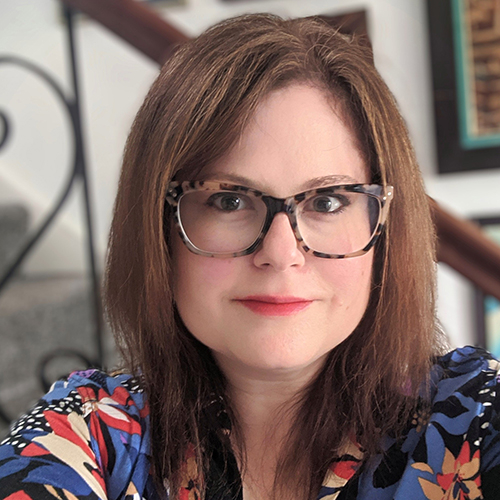

Tamara Drenttel Brand holds an MA in Near Eastern Studies from the University of Arizona and a Master’s in Public Health (MPH) from the American University of Beirut. She spent 10 years in the Middle East, where she worked as a public health practitioner, infant and maternal health consultant and an IBCLC. She has supported breastfeeding dyads from all over the world both in private practice and as a volunteer. In 2011, she founded and still actively facilitates “Mama 2 Mama Beirut Breastfeeding Support,” the largest breastfeeding peer support network in the Middle East (currently at 25k+ members). Additionally, she founded Galactablog, a professional group for lactation specialists and those aspiring-to-be (currently at 4.7k+ members) and has authored several articles for La Leche League’s monthly leader publications in both the Middle East and Ireland.
She is currently an international speaker on the topics dealing with breastfeeding in the Middle East, innovative lactation teaching strategies, working in resource-scarce settings, providing culturally sensitive lactation support, developing and implementing peer counselor training programs, mast cell disease and other related topics. Due to her own chronic health conditions, she has a special interest in educating others about mast cell disease and supporting those with chronic illnesses. She currently resides in a seaside village in Ireland with her family.
Topic: Contextualizing Breastfeeding in Lebanon - [View Abstract]
Topic: Lactation Education Outside the Box: Innovative Teaching Strategies to Engage Your Audience - [View Abstract]
Topic: Mast Cell Diseases and Lactation Care in the Post-Covid Era - [View Abstract]
Topic: Providing Culturally Sensitive Support for Breastfeeding Muslim Families - [View Abstract]
Topic: Reflections on a Breastfeeding Peer Counselor Program in Lebanon: Lessons Learned and Looking Forward - [View Abstract]
Objective 1: Describe at least 2 ways a Muslim father can support his breastfeeding wife within the Islamic context;
Objective 2: List at least 1 thing the Qur’an says about breastfeeding;
Objective 3: Recall at least 3 new things you learned about the religion of Islam or Islamic cultural or traditional practices.
Lactation professionals can provide invaluable assistance to Muslim families seeking to successfully breastfeed. However, cultural differences and a lack of understanding of Islamic culture could create barriers between professionals and the families they are trying to support. It is crucial that professionals and health care providers are aware of and acknowledge the unique role that culture and religion can play in this dynamic, both to prevent obstacles to breastfeeding and to encourage breastfeeding through culturally specific methods and arguments.
This presentation will show how to adapt your approach, language and content to ensure effective and sensitive care that will be more readily accepted by the mother and her family. It explores what the Qur’an says about breastfeeding and delves into traditional and cultural Islamic attitudes and practices surrounding breastfeeding. Moreover, it will explore the father’s role in Muslim culture and offer religious justification to encourage him to support breastfeeding, as well as issues of wet-nursing, milk sharing and adoption (as it relates to breastfeeding) within the Islamic context. As a participant, you will be encouraged to challenge your own assumptions about Islamic traditional and cultural practices and to use new knowledge gained to empower others to reflect on the benefits of being a culturally sensitive and responsive lactation professional and health care provider.


Marcda Hilaire immigrated from Haiti to the United States in 1995. At a very young age, she served as a trainee in the biomedical program now known as the STEM PREP program. She received a Bachelor’s in Biology from Temple University and a Master’s in Public Health with a concentration in Maternal & Child Health from University of South Florida. Having worked in breastfeeding since 2012, Ms. Hilaire recently earned her IBCLC in June 2017. Ms. Hilaire currently serves as a breastfeeding coordinator in Palm Beach County, is a member of the Palm Beach County Breastfeeding Coalition and corresponding secretary for the Florida Breastfeeding Coalition. She serves as a member of the Health Ministry at Philadelphia Church of the Newborns. Ms. Hilaire and her husband have two children, one of whom is a currently breastfeeding 9 month old. She enjoys poetry, singing, and writing.
Objective 1: Evaluate breastfeeding rates in Haiti;
Objective 2: Discuss the contributions of baby tents in breastfeeding promotion during natural disasters in Haiti;
Objective 3: List the strengths and limitations of the Baby Friendly Hospital Initiative in Haiti;
Objective 4: Discuss opportunities for culturally appropriate sustainable breastfeeding initiatives.
Background: According to the World Health Organization, suboptimal breastfeeding contributes to 1.45 million deaths in developing countries. Haiti, the first black Republic has had various initiatives to promote breastfeeding. While 97% of Haitian-born neonates are ever breastfed (Ministry of Public Health, 2013), initiation within the first hour of birth is only slightly more than half (46.7% in 2008-2012, MIH). Exclusive breastfeeding for 6 months was 39.7% (2008-2012 data in MIH).Various initiatives have been implemented to promote breastfeeding in Haiti.
Objectives: The purpose of this presentation is to analyze and evaluate the implementation of baby tents and baby friendly hospitals in Haiti through a literature review.
Findings: The literature has a limited scope of methodical research for these initiatives. Baby tents increased exclusive breastfeeding through psychosocial support, breastfeeding counseling, and nutrition training of health professionals. Baby Friendly hospitals have increased breastfeeding initiation but have limited recertification status. The literature indicates a sustainability and supportive infrastructure which is feasible through global partnerships, culturally appropriate trainings for health professionals, and fostering peer-to-peer support.
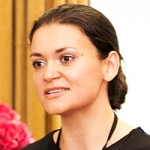

Mihaela Nita- MD, IBCLC, medical doctor (since 2007), specialized in pediatrics and International Board Certified Lactation Consultant (since 2011), worked mainly to develop the profession of IBCLC in Romania. Organizer of the first IBCLC Day in Romania, is the co-founder and president of Romanian Lactation Consultant Association, member of ELACTA. Active in the field of lactation, organizing conferences, events, support groups, 90 hours training courses, CERPs accredited courses, fundraising events. On behalf of the Romanian Lactation Consultant Association, Mihaela Nita started the first volunteer work in the country, in the NICU of Marie Curie Emergency Children Hospital in Bucharest that led to the idea of implementing a human milk bank. Mihaela is passionate about training, advocating for the IBCLCs role and making a change for mothers, society and medical system in the field of lactation.
Objective 1: Discuss advocacy through the IBCLC profession;
Objective 2: Describe how to promote breastfeeding;
Objective 3: List how to implement a human milk bank.
Romania is one of the European countries with a very low breastfeeding rate. The emergence of IBCLCs in the past 2 decades helped in improving mothers access to lactation professionals. Starting from 2013 with the first celebration of IBCLC Day, conferences and courses, the awareness of a new profession raise.
Although in Europe there are more than 200 human milk banks, Romania does not have one.
The limitations in the process of implementing a human milk bank in the NICU, the gap of legislation, the support of the civic society and 2 cases are discussed in the presentation.
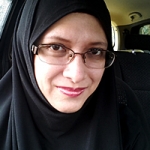

Nadrah Arfizah Arifin (MBBS, MPH, IBCLC) is a medical professional in public health and a lactation consultant who obtained her medical degree from University of Malaya, Kuala Lumpur in 2004. Her involvement in breastfeeding support and advocacy started in 2007 as a local breastfeeding supporter at her workplace. She further involved in community-based breastfeeding support voluntarily by joining the Malaysian Breastfeeding Peer Counselor Association (MBfPCA) in 2010. She became the first breastfeeding peer counsellor of MBfPCA who successfully upgraded to become the program trainer in 2011 to 2012, thus making the framework for Train of Trainer program in MBfPCA in effort to further grow the network. She is currently the President of MBfPCA and together with other Core Trainers, they plan for sustainability of breastfeeding support by peer counsellors for Malaysian community. While doing her Doctoral degree in Public Health (DrPH), she is also working on few projects in MBfPCA particularly in capacity building of breastfeeding peer counselors with the interest of maintaining its integrity, reliability and relevancy through monitoring and evaluation of community breastfeeding support program.
Objective 1: Acknowledge the challenges, social expectation and changing trends in breastfeeding
support works among volunteers for the past years based on Malaysian experience;
Objective 2: Learn the importance of upgrading breastfeeding peer counselors’ skills to ensure reliability
and sustainability for local breastfeeding support in peer counseling context;
Objective 3: Learn the mechanism used to plan for training upgrade to meet local expectations either
from health professionals and the public in order to bridge the gaps and remain relevant;
Objective 4: Learn the importance of selecting PC candidates to uphold the principles of breastfeeding support works and noble intention by non-health personnel.
The roles of peer counselors (PC) in breastfeeding support is important to reach mothers and families in community as they would bridge the gaps within the warm chain of breastfeeding support. However, challenges has overcome in many forms, especially their reliability in providing breastfeeding support skills and knowledge. Malaysian Breastfeeding Peer Counselors (MBfPC) program has started in 2010 to enhance breastfeeding support for Malaysian community. Its training syllabus were adapted and modulated to be culturally acceptable. More than 500 PCs were trained.
The original syllabus was continuously being revised prior to each training since Malaysia is multicultural with great diversity, with few adaptations of new tools to enhance the understanding among the trainees whom majority are not health personnel. MBfPC Association (MBfPCA) is responsible to reliability queries by other parties, thus overseen the needs for MBfPC training reform. Three training levels were introduced in 2016; entrance, advanced, and train-of-trainers; to increase reliability of certified PC, even though the sustainability of the network is yet to be observed. The mechanisms used to select, train and certify the PCs had strengthened the roles and functional relevancy of MBfPCA existence in Malaysian scenario. This presentation will share the challenges and framework of capacity building among PCs to function as breastfeeding peer supporters in Malaysian context.
Accreditation
CERPs - Continuing Education Recognition Points GOLD Conferences has been designated as a Long Term Provider of CERPs by the IBLCE--Approval #CLT114-07 26 CERPs (24 L-CERPs/1 E-CERP/1 R-CERP)
If you have already participated in this program, you are not eligible to receive additional credits for viewing it again. Please send us an email to [email protected] if you have any questions.Additional Details
Viewing Time: 8 Weeks
Tags / Categories
(IBCLC) Education and Communication, (IBCLC) Ethical and Legal Issues, (IBCLC) Infant, (IBCLC) Infant, (IBCLC) Maternal, (IBCLC) Maternal, (IBCLC) Pharmacology and Toxicology, (IBCLC) Physiology and Endocrinology, (IBCLC) Psychology, Sociology, and Anthropology, (IBCLC) Public Health and Advocacy, (IBCLC) Research, (IBCLC) Techniques, Baby-Friendly Hospital Initiative, Breast and Nipple Pain, Breastfeeding Advocacy, Breastfeeding Complications, Breastfeeding Support, Breastmilk / Human Milk, Counseling Skills, Cultural Competency, Drug & Alcohol Use, Human Milk Banks, IBCLC Using Research, Inequalities & Breastfeeding, Latch & Position, LGBTQIA2S Families & Breastfeeding, Managing Milk Supply, Maternal Anatomy & Physiology, Neonatal Abstinence Syndrome, Peer Support for Breastfeeding, Perinatal Mood and Anxiety Disorders, Postpartum Depression, Trauma & Breastfeeding, Weaning
How much time do I have to view the presentations?
- The viewing time will be specified for each product. When you purchase multiple items in your cart, the viewing time becomes CUMULATIVE. Ex. Lecture 1= 2 weeks and Lecture Pack 2 = 4 Weeks, you will have a total of 6 weeks viewing time for ALL the presentations made in that purchase.
- Time for viewing the talks begins once you purchase the product. For Live Webinars & Symposiums, the viewing period begins from when the live event takes place. Presentations can be accessed 24/7 and can be viewed as many times as you like during the viewing period.
What are bundled lectures?
- Presentations may be available individually or via a bundled package. Bundled lectures are a set of lectures that have been put together based on a specific category or topic. Some lectures will be available in both individual and lecture form, whereas others will be available only via a bundled lecture pack.
Will there be Handouts?
- YES! Each lecture comes with a PDF handout provided by the Speaker.
Some lectures include a Q&A, what does that mean?
- During our online conferences, presentations that occur live are also followed by a short 15 minute Question & Answer Session. The Speaker addresses questions that were posted by Delegates during the presentation. We include the recording of these Q&A Sessions as a bonus for you.
How can I receive a Certificate?
- If this presentation offers a certificate, once you are done viewing the lecture or the lectures within a bundle, submit your attendance record in order to be able to download your certificate. You'll be able to see which credits are offered for the lecture by hovering over the "Credits Available" link within the "Speakers & Topics" tab.
Professionals that selected this package also viewed

|
|

|





















